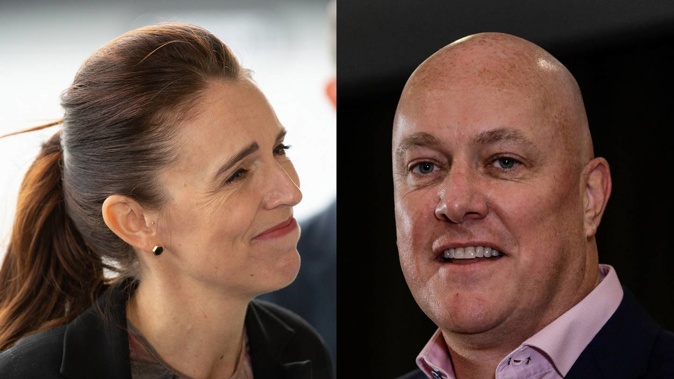
A new poll has Labour slightly ahead of National, with just enough support to govern, provided Te Pāti Māori did not back National and Act.
The Talbot-Mills corporate poll for May put Labour on 37 points, up 1 point, and National on 36, down 1 point.
The Greens were steady on 8, and Act was down 2 points to 7.
Te Pāti Māori polled 3 per cent, down from 3.2, and NZ First was at 4 per cent, up 1 point, and just shy of the 5 per cent threshold.
Talbot-Mills polls for the Labour Party, but this is a poll for their corporate clients.
On these numbers, Labour would have 49 seats, and the Greens would have 11, giving that bloc 60 seats in Parliament. National would have 47 seats and Act would have 9, giving them 56 seats.
If Te Pāti Māori wins an electorate seat, it would have four seats, enough to create a hung Parliament if it backed National and Act, or to give Labour and Greens the right to govern formally backed them, or if it abstained from blocking confidence and supply motions.
The poll comes as support for the left and right blocs in Parliament continues to tighten. A TVNZ-Kantar poll published on Monday night showed National/Act and Labour/the Greens/Te Pāti Māori with 60 seats each.
Speaking to the TVNZ-Kantar poll in Washington DC, Prime Minister Jacinda Ardern said her "expectation is we would continue to do all we can during this really tough period New Zealand is in – and we've acknowledged that".
"This is a tough period and in the polls you can see that reflected back," Ardern said.
National leader Christopher Luxon said he the poll showed National "had made great progress over the last six months as a team".
In that poll, National was steady on 39 per cent and Labour had dropped two points to 35 per cent.
The Green Party was up one point to 10 per cent, Act down one to 7 per cent and Te Pāti Māori steady on 2 per cent.
There has been a surprising reversal in two key polling indicators for Labour. The "right track/wrong track" polling metric is often considered to be a leading polling indicator, meaning it tends to anticipate changes in the party vote. If an increasing number of people think the country is on the wrong track, governing parties' party vote tend to decline.
In May, 51 per cent of people believed the country was on the "right track", up two points, while 40 per cent of people believed the country was on the "wrong track", down three points.
A large number of people continue to think the economic conditions in New Zealand were "poor" or "not so good" – 65 per cent, versus 33 per cent who believed the economic conditions were "good" or "excellent".
Those two trends are narrowing. The number of people who continue to think the economic conditions in New Zealand were "poor" or "not so good" fell two points over the last month, and the number of people who believed the economic conditions were "good" or "excellent" increased two points.
- by Thomas Coughlan, NZ Herald
Take your Radio, Podcasts and Music with you









